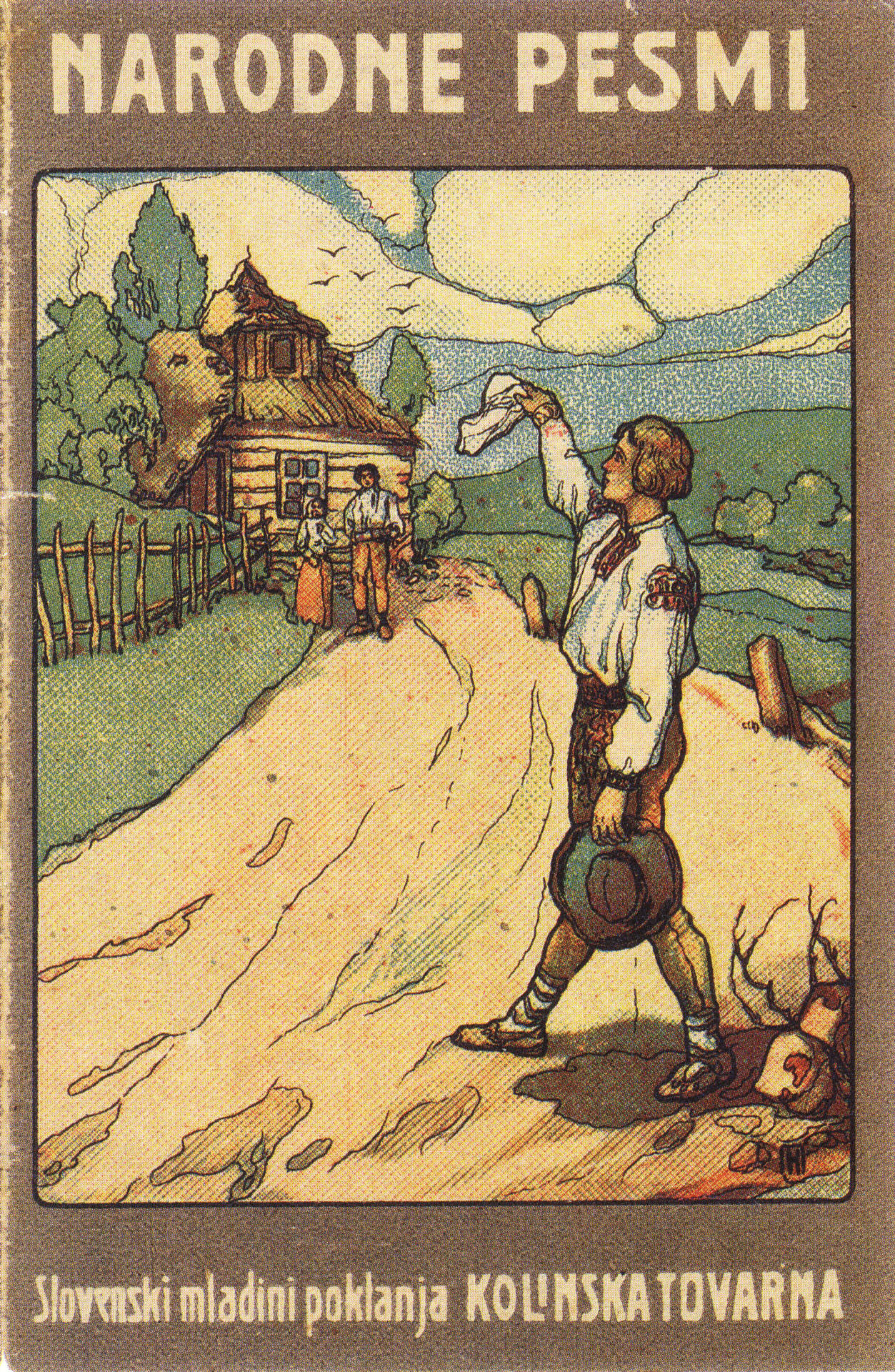Songs have always stirred people to action, fostered their awareness of their national identity, and accompanied them in revolutions and wars. With patriotic and revolutionary songs on their lips, people have shaped history.
The best-known Slovene writers of patriotic poetry in the second half of the nineteenth century were Simon Jenko and Simon Gregorčič. Some of their poems, set to music by composers, grew so popular that over time they became part of the folk tradition.
During the reading society period, choral singing played an important role, strengthening love of the homeland, the nation and the Slovene language through patriotic songs. The choral repertoire included both folk songs and original compositions. During the period of national rebirth, the creativity of composers centred above all on emphasising national identity, while their compositions were arranged in such a way as to allow their performance by musicians of a wide range of abilities and thus have continued to be performed right up to the present day. The focus was on patriotic lyrics and melodies that would appeal to the crowds.
The period of national awakening and the tabor movement was accompanied by the compositions of the Ipavec brothers, Miroslav Vilhar, Davorin Jenko, Hrabroslav Volarič, Anton Hajdrih, Anton Foester, Anton Nedved, and others.
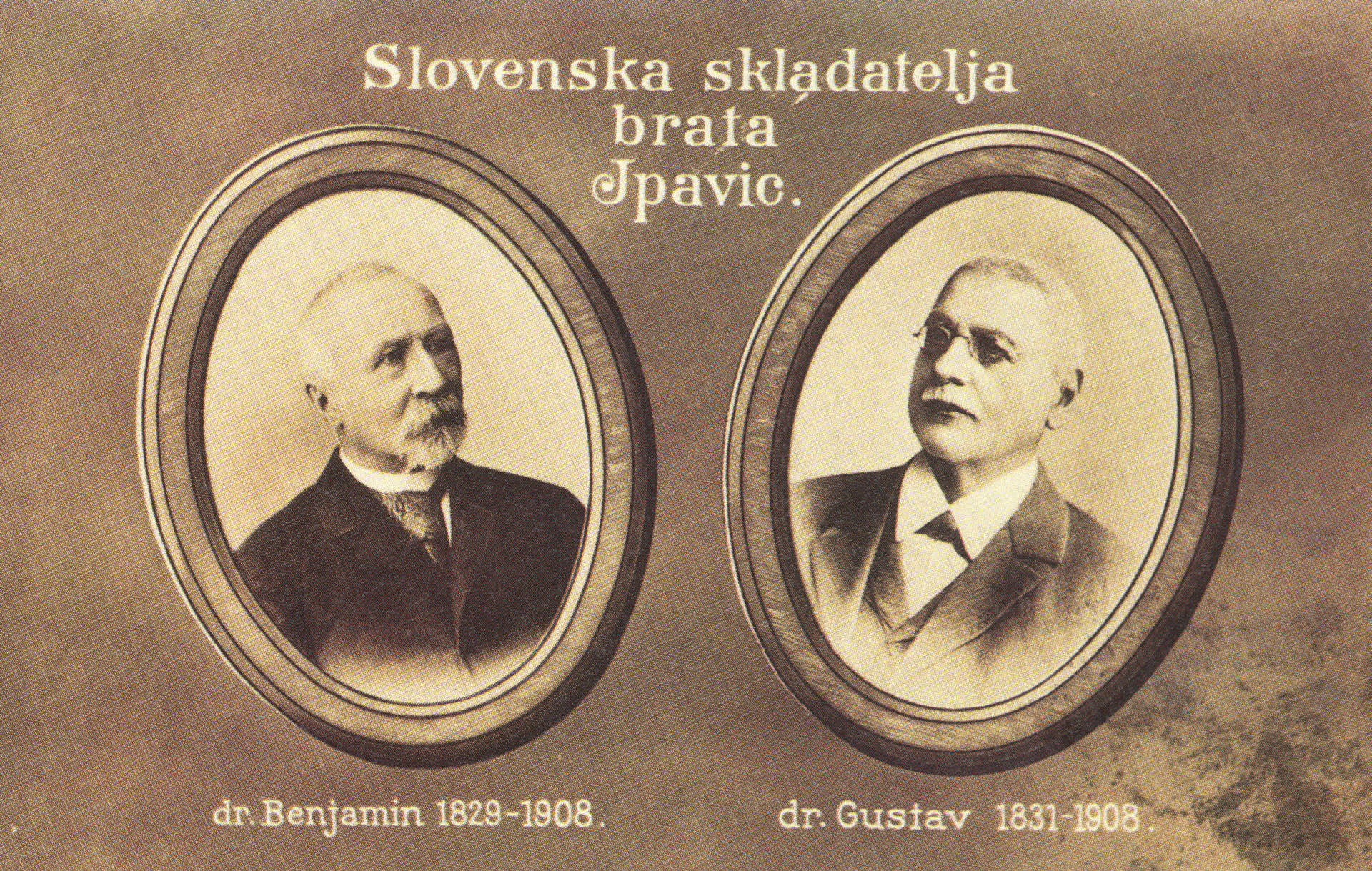 The period of the tabor movement and the national awakening was accompanied by the compositions of the Ipavec brothers, both of them doctors from Šentjur in the Štajerska region. Several of their songs have become part of national culture.
The period of the tabor movement and the national awakening was accompanied by the compositions of the Ipavec brothers, both of them doctors from Šentjur in the Štajerska region. Several of their songs have become part of national culture.
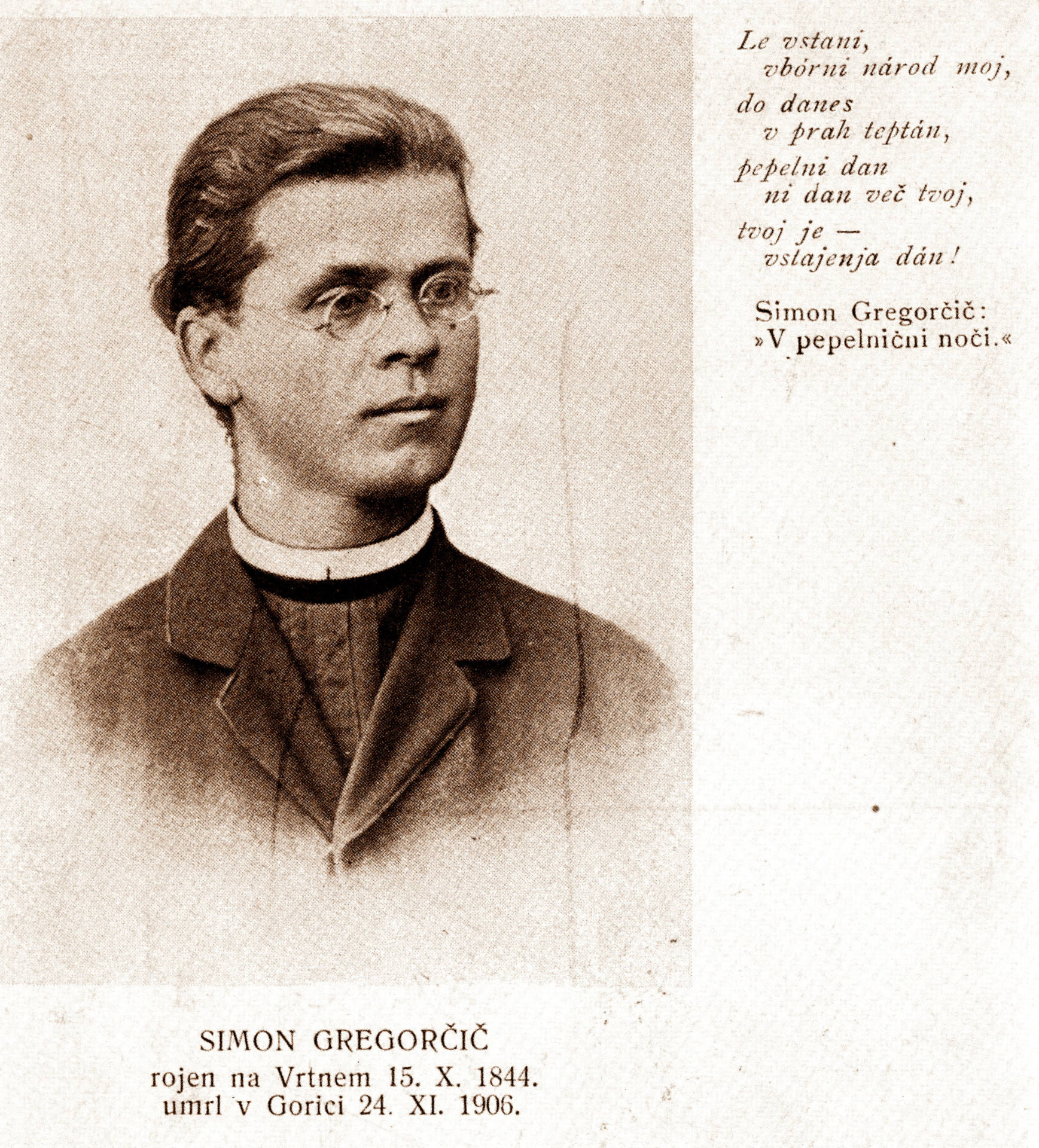 Simon Gregorčič (1844–1906) was very popular in his own lifetime. His simplicity of expression and the melodiousness of his poems earned him the nickname “the nightingale of Gorizia”.
Simon Gregorčič (1844–1906) was very popular in his own lifetime. His simplicity of expression and the melodiousness of his poems earned him the nickname “the nightingale of Gorizia”.
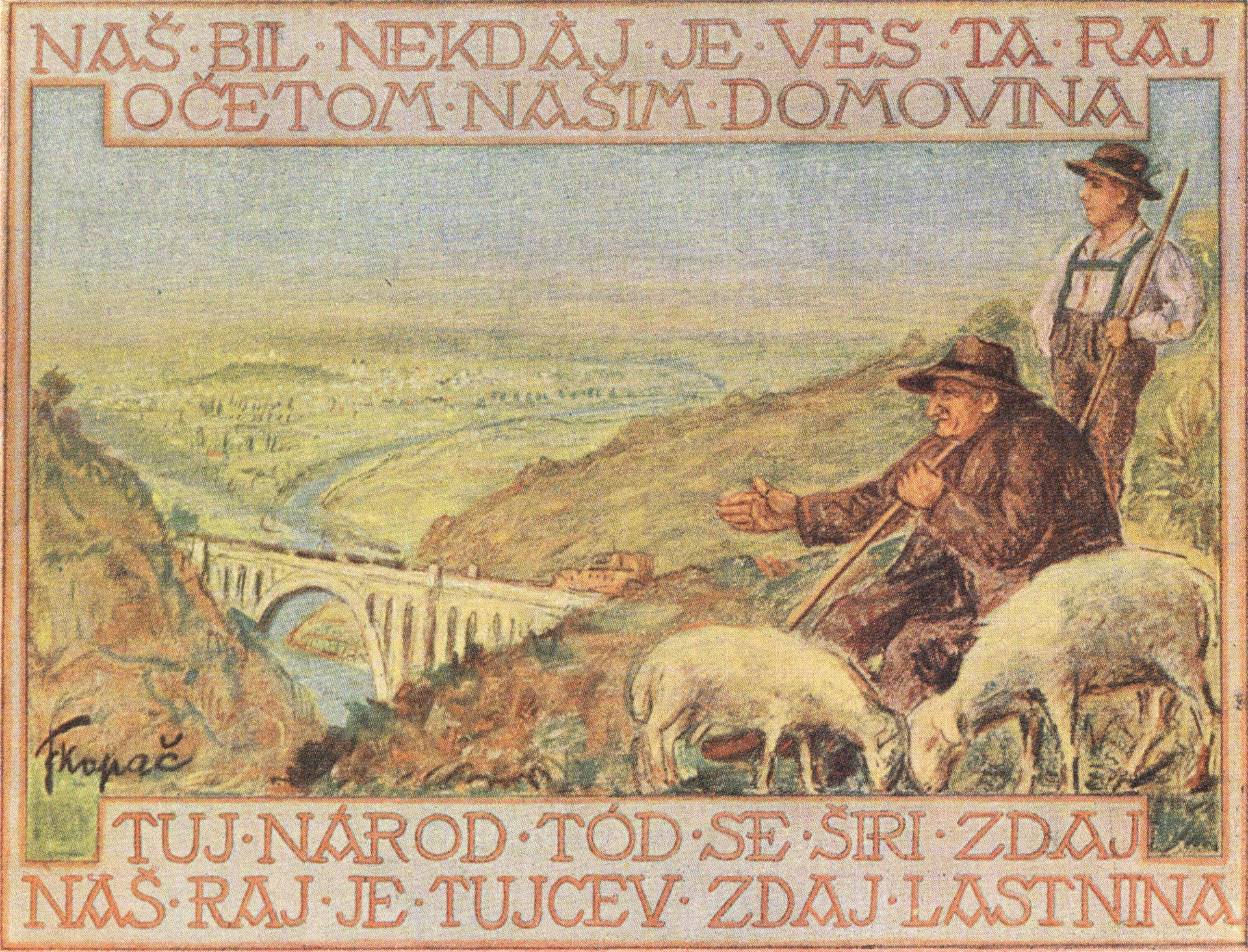 At the time of the First World War people would add Gregorčič’s verses to postcards.
At the time of the First World War people would add Gregorčič’s verses to postcards.
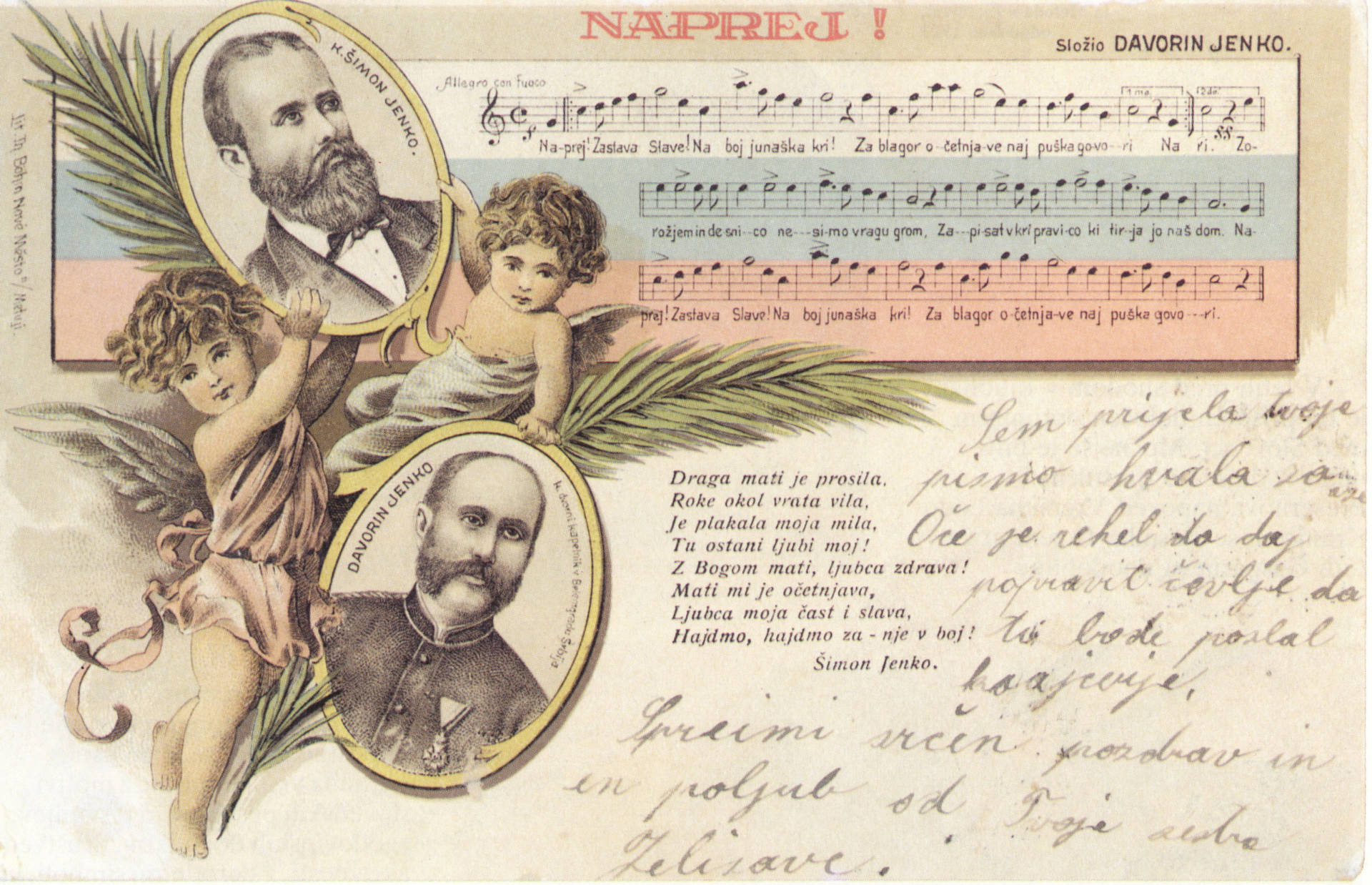 Simon Jenko (1835–1869) published the poem “Naprej” (“Forward”) in 1860. After being set to music by Davorin Jenko, it became the herald of a new era and an expression of Slovene aspirations for unity. As “Forward, Flag of Glory”, it became the first Slovene national anthem.
Simon Jenko (1835–1869) published the poem “Naprej” (“Forward”) in 1860. After being set to music by Davorin Jenko, it became the herald of a new era and an expression of Slovene aspirations for unity. As “Forward, Flag of Glory”, it became the first Slovene national anthem.
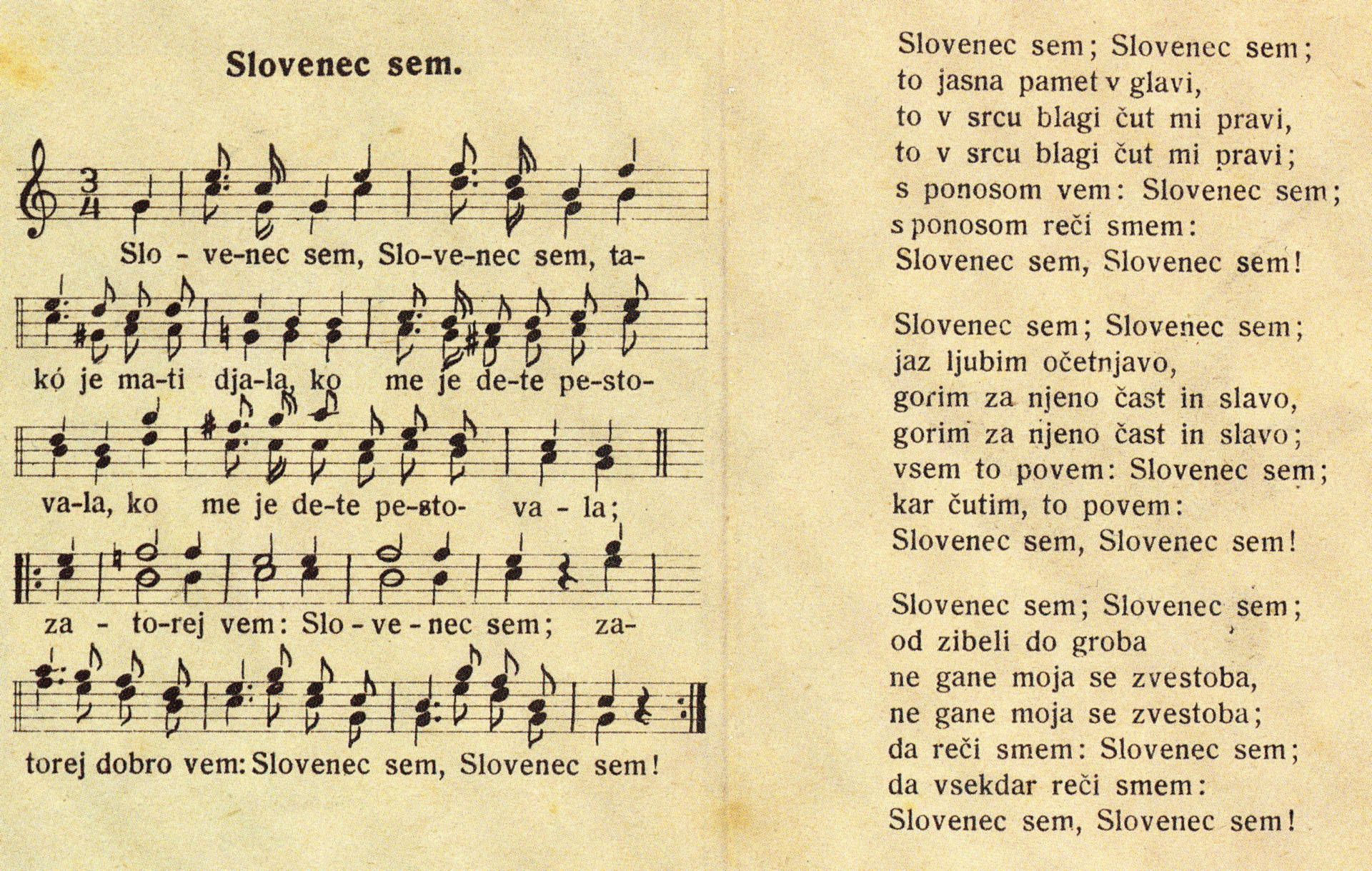
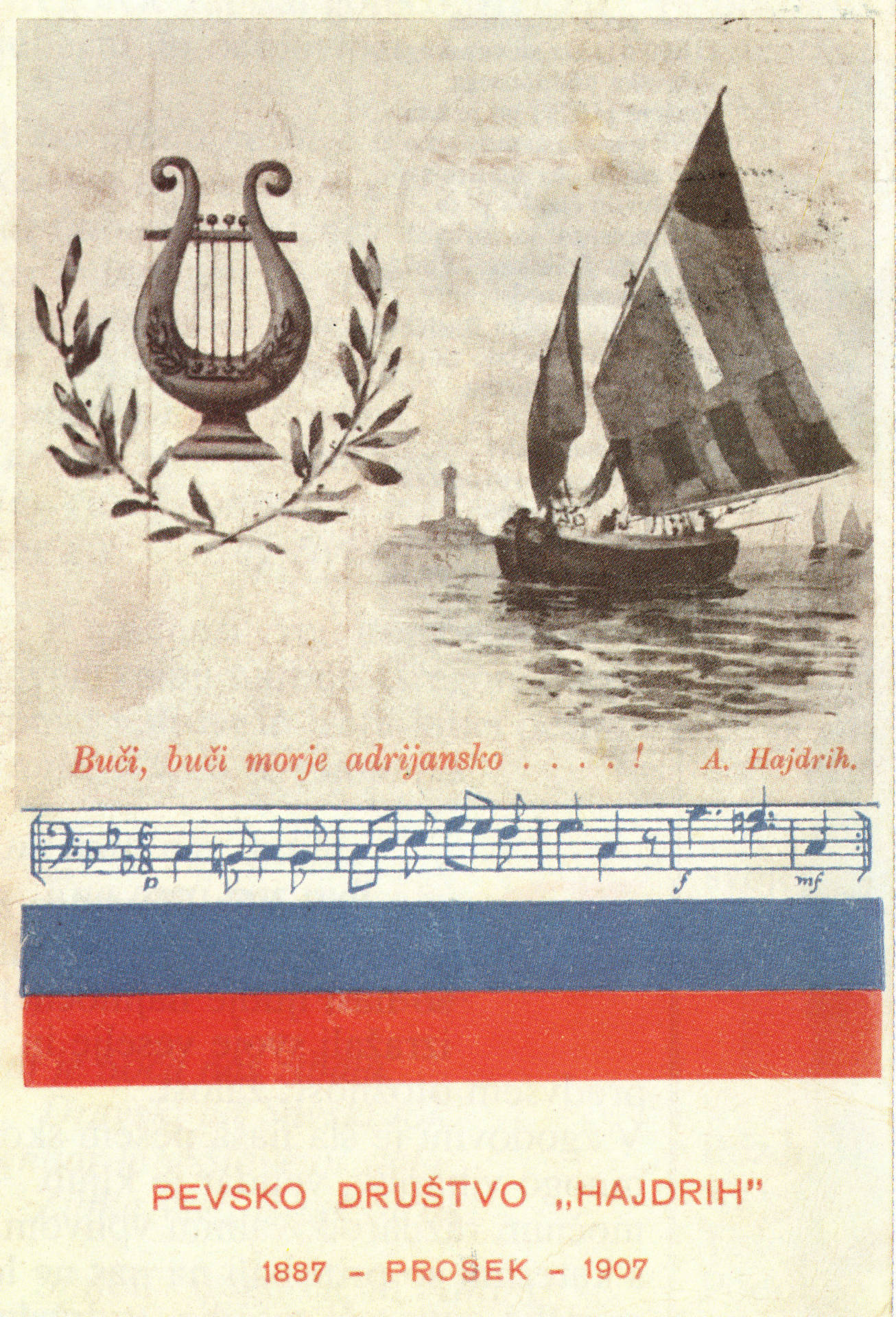 In 1862 Simon Jenko wrote the poem “Buči morje Adrijansko” (“Roar, O Adriatic Sea”), which became the anthem of the Slovenes of Primorska and Trieste, particularly after it was set to music.
In 1862 Simon Jenko wrote the poem “Buči morje Adrijansko” (“Roar, O Adriatic Sea”), which became the anthem of the Slovenes of Primorska and Trieste, particularly after it was set to music.
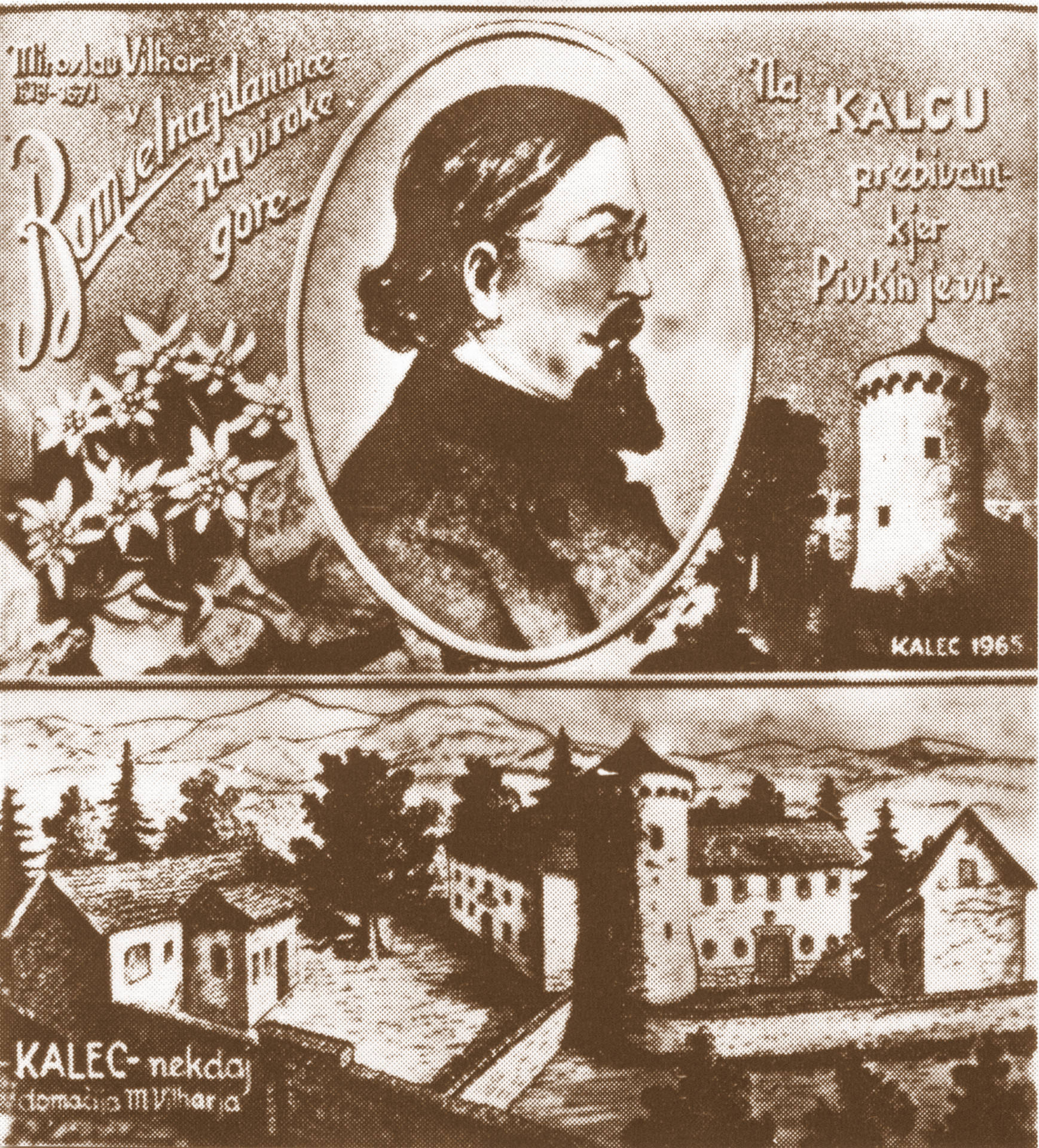 Miroslav Vilhar (1818–1871), born in Planina, lived in Kalc near Knežak and was an active figure in the movement for national awakening in the Notranjska region. The poems he wrote and set to music were so popular that they have become part of the folk tradition (“Lipa zelenela je”, “Zagorski zvonovi”, “Po jezeru”, etc.).
Miroslav Vilhar (1818–1871), born in Planina, lived in Kalc near Knežak and was an active figure in the movement for national awakening in the Notranjska region. The poems he wrote and set to music were so popular that they have become part of the folk tradition (“Lipa zelenela je”, “Zagorski zvonovi”, “Po jezeru”, etc.).
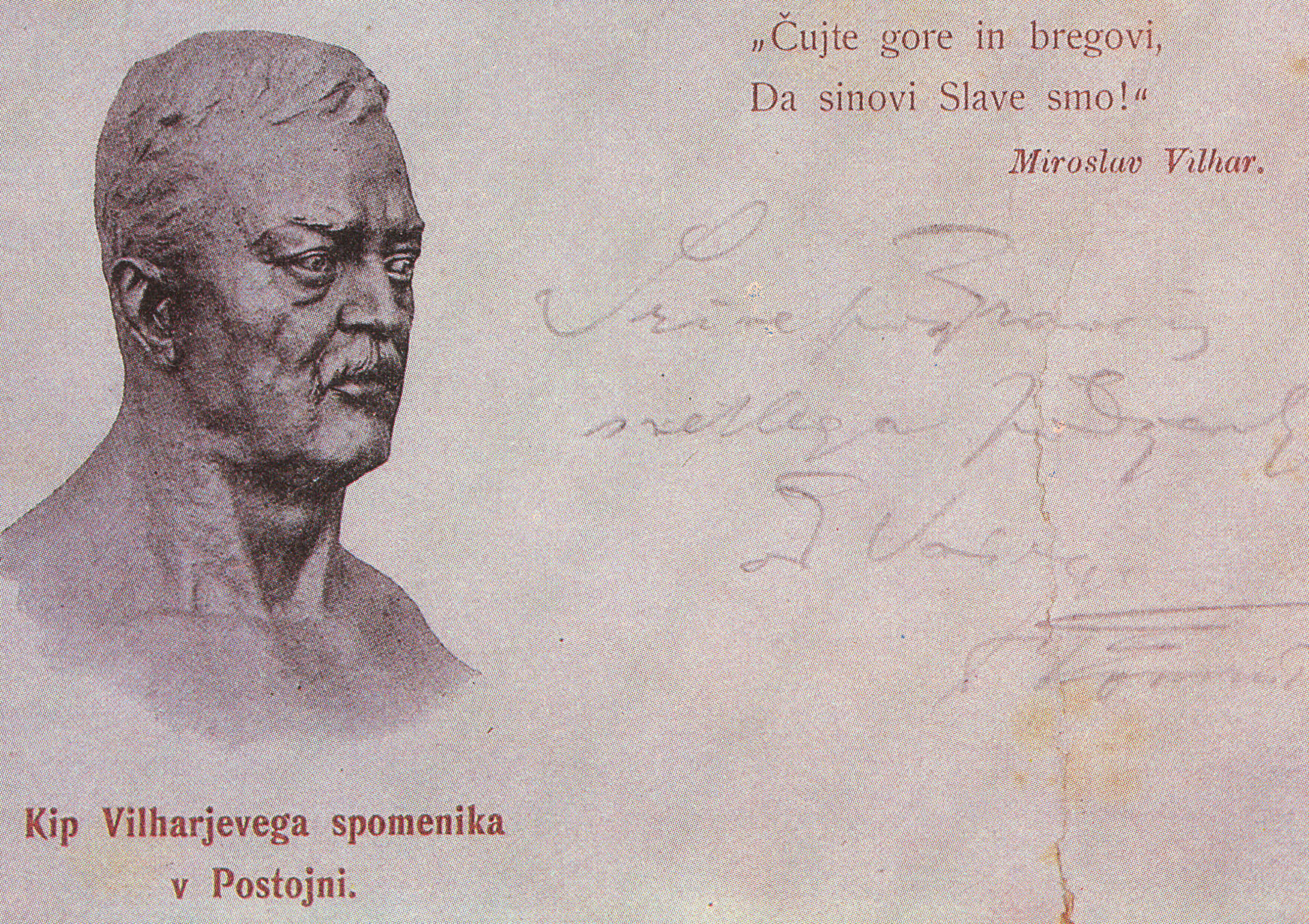 In 1906 a monument to Vilhar, the third to a Slovene, was unveiled in Postojna.
In 1906 a monument to Vilhar, the third to a Slovene, was unveiled in Postojna.
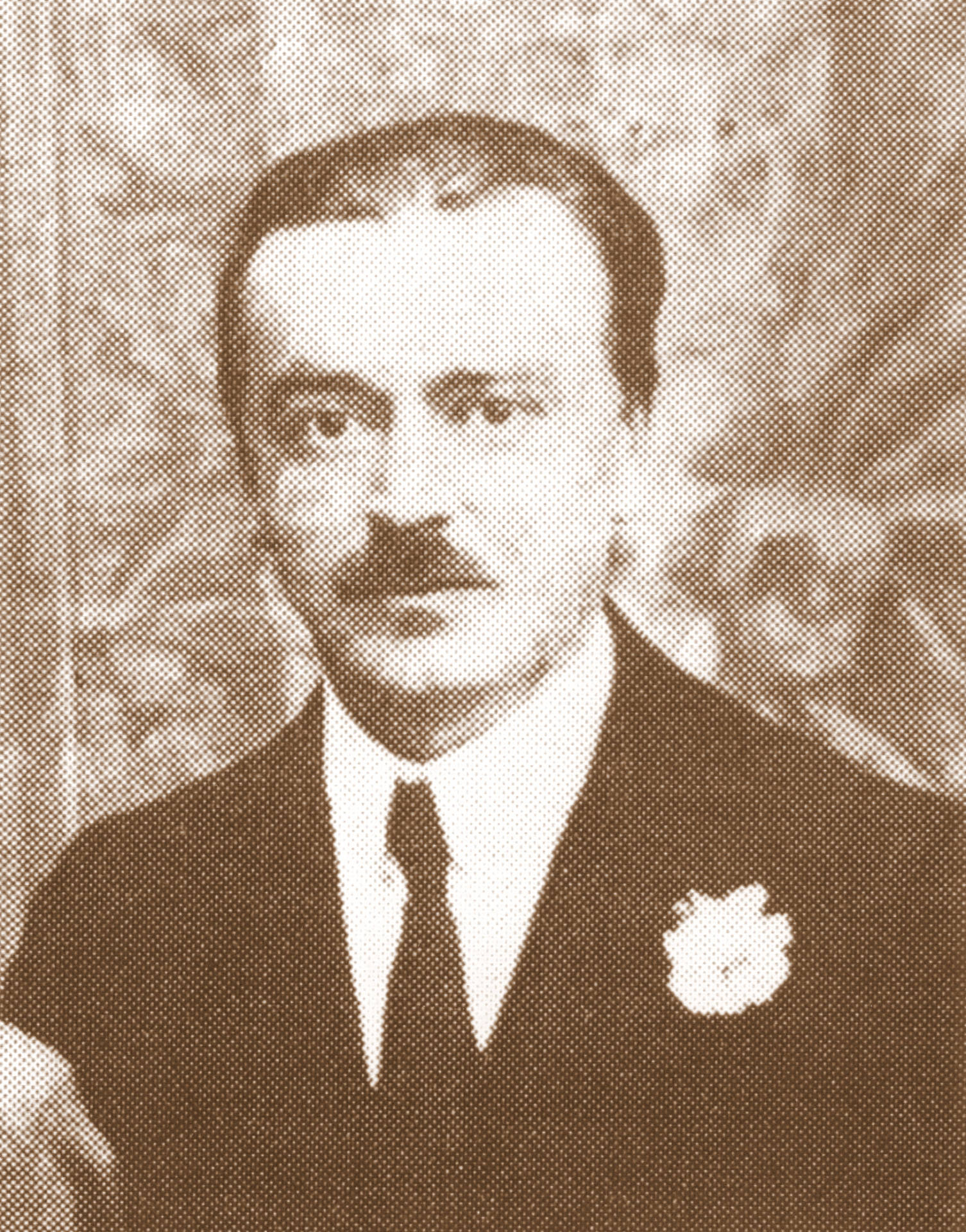 Fran Venturini (1882–1952), teacher, choirmaster and composer, from Bagnoli/Boljunec. In the first two decades of the twentieth century he was extremely active in the cultural field in the municipality of San Dorligo della Valle/Dolina. He composed music for church choirs, secular choirs and children’s choirs.
Fran Venturini (1882–1952), teacher, choirmaster and composer, from Bagnoli/Boljunec. In the first two decades of the twentieth century he was extremely active in the cultural field in the municipality of San Dorligo della Valle/Dolina. He composed music for church choirs, secular choirs and children’s choirs.
